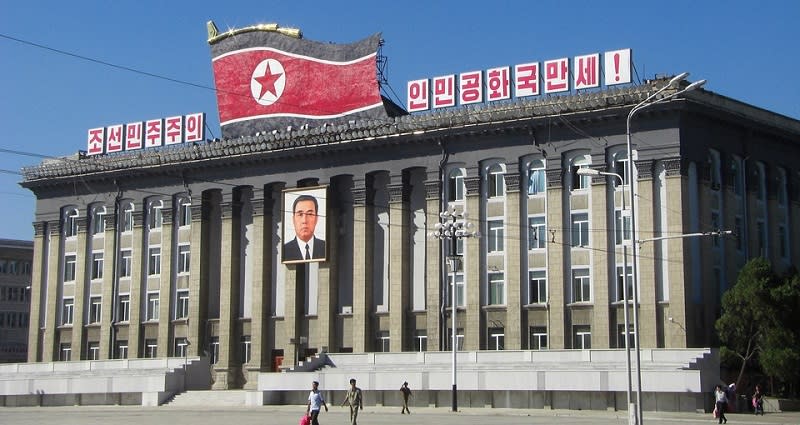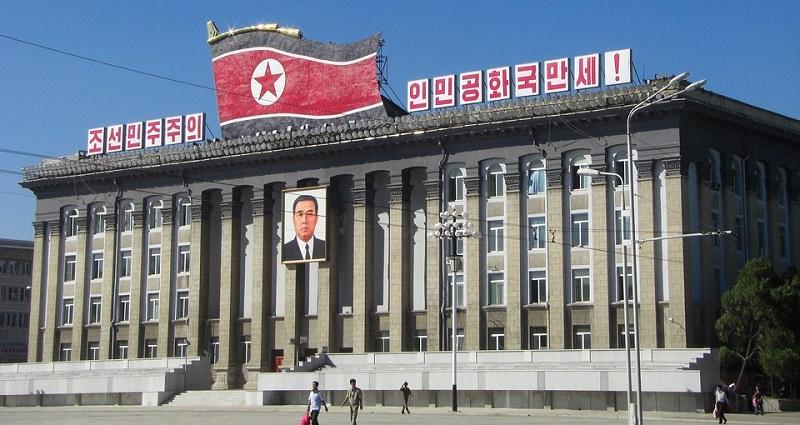
North Korea has recorded its first COVID-19 deaths after the hermit nation reported an “explosive” outbreak that possibly infected over 350,000 people.
Around 18,000 people in the East Asian country experienced new “fever cases” on Thursday alone. One of the six people who have died as of Friday was reportedly infected with the BA.2 subvariant of Omicron.
#urgent North Korea has reported its first ever case of Covid-19. State media calls the outbreak in Pyongyang a “major national emergency.” Omicron could cripple the nation’s dilapidated healthcare system. NK has sealed its borders since January, 2020. @NewDay @brikeilarcnn pic.twitter.com/KMAxZ3vYUG
— Will Ripley (@willripleyCNN) May 12, 2022
“A fever whose cause couldn’t be identified explosively spread nationwide since late April,” Korean Central News Agency (KCNA) stated. “As of now up to 187,800 people are being isolated.”
The North Korean news outlet also said that over 350,000 people have shown symptoms, and around 162,200 have been treated so far.
The country has called the outbreak in Pyongyang a “major national emergency” but has yet to confirm the exact number of confirmed positive cases. News of its first-ever COVID-19 death was confirmed after the government imposed “maximum emergency measures,” including a nationwide lockdown, to contain the outbreak in the capital.
“It is the most important challenge and supreme task facing our party to reverse the immediate public health crisis situation at an early date,” North Korean leader Kim Jong-un said after visiting North Korea’s emergency epidemic prevention headquarters to learn about the situation on Friday.
Some experts stated that a significant outbreak could quickly overwhelm North Korea’s poorly equipped health facilities. They also pointed out that only a few of the country’s 25.8 million citizens have been vaccinated.
“Most North Koreans are chronically malnourished and unvaccinated, there are barely any medicines left in the country, and the health infrastructure is incapable to deal with this pandemic,” Lina Yoon, a senior Korea researcher at Human Rights Watch, said.
“The international community should offer medicine for COVID-19-related symptoms, COVID-19 anti-viral medicines, and provide vaccines and all necessary infrastructure for vaccine preservation, including fridges, generators and gasoline,” she added.
Following the news, nations such as South Korea have shared their plans to offer assistance to help North Korea battle its first outbreak since the pandemic began in 2020. On Thursday, White House press secretary Jen Psaki said the United States is currently not planning to send COVID-19 vaccines to North Korea.
The hermit nation has reportedly refused several vaccine offers from China, Russia and the World Health Organization’s Covax initiative in the past since this would necessitate outside monitoring.
The country’s openly public acknowledgment of the outbreak might mean that the “public health situation [in North Korea] must be serious,” Leif-Eric Easley, a professor at Ewha University in Seoul, told the Associated Press.
“This does not mean North Korea is suddenly going to be open to humanitarian assistance and take a more conciliatory line toward Washington and Seoul,” he added.
Featured Image via Pixabay
Enjoy this content? Read more from NextShark!
Oakley police continue search for woman who went missing ‘under suspicious circumstances’
Liquor Store Owners Busted for Human Trafficking After Enslaving Man From India
Instagram Parents Spark Outrage After ‘Team Coronavirus’ Joke on Asian Travelers
Westminster park renamed after Tony Lam, the first Vietnamese American to win political office




